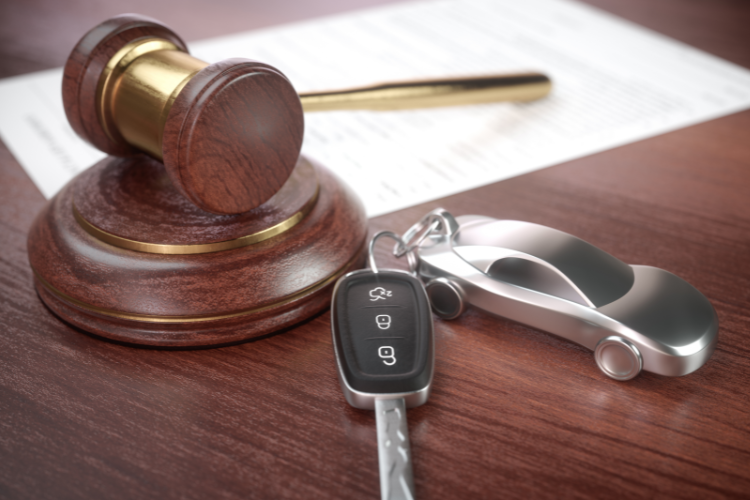Buying a car from an auction can be a cost-effective way to purchase a vehicle, often offering lower prices than traditional car-buying methods. In addition, auctions provide access to a broader selection of vehicles than shopping through your local car dealerships.
However, car auctions have their own rules, risks, and strategies. Whether you’re looking for a bargain, a rare model, or a quick sale, understanding how auctions work is key to successfully navigating the process.
In this guide, we’ll cover everything you need to know about buying cars at auction, including tips, steps, and strategies to help you make an informed purchase.
Key Takeaways:
- Researching the auction company and the specific vehicle is crucial to ensure a successful and informed purchase.
- Public and online auctions are accessible to individuals, while dealer auctions typically require a licensed broker.
- Always inspect vehicles carefully, whether in-person or through detailed reports in online auctions, to avoid costly surprises.
- Have a clear budget and transportation plan in place before bidding, as auctions move quickly and require fast payment and vehicle removal.
In This Guide:
- What is an Auto Auction?
- Steps to Buy a Car at Auction
- Types of Auto Auctions
- Tips for Buying a Car at Auction
- Buying a Car at Auction FAQs
What is an Auto Auction?
Auto auctions are sales events where vehicles are sold to the highest bidder. They can range from large-scale public auctions to more exclusive ones for car dealers. Cars at auction often come from various sources, including repossessions, trade-ins, rental fleets, or government agencies.
Car auctions offer buyers the opportunity to acquire vehicles at a discount but also carry risks like limited warranties or minimal inspection periods.
Auctions can be live, held in-person at an auction house, or online, where buyers can place bids from the comfort of their homes. It’s essential to understand the car auction process and the type of vehicles being sold, as these factors can affect your overall experience and final price.
Steps to Buy a Car at Auction

Before diving into an auction, it’s essential to follow specific steps to ensure a successful and smooth experience. Preparation is key, from researching the auction company to transporting the vehicle home. Here’s a breakdown of the critical steps to buy a car from an auction:
Research the Auction Company
Start by investigating the car auction company you plan to use. Reputable auction houses are transparent about their processes, fees, and inventory. Check reviews, online forums, and the Better Business Bureau to ensure you’re dealing with a credible organization.
Some car auctions cater to the general public, while others are exclusive to dealers, so make sure the auction is accessible to you.
Research the Type of Car You Want
Knowing the make, model, and condition of the vehicle you’re interested in will help you set realistic expectations. Look into common issues for that type of car and recent sales prices to gauge the market value. This research ensures you don’t overpay or end up with a car that requires costly repairs.
Set a Budget
Determine how much you’re willing to spend, factoring in not just the bid price but also auction fees, registration costs, and potential repairs. Car auctions can be competitive, and it’s easy to get caught up in the excitement, so stick to your budget to avoid overpaying.
Register for the Auction
Most auctions require registration before you can participate. This process may involve submitting personal identification, paying a deposit, and agreeing to auction terms. Ensure you understand the rules of the auction, including any buyer premiums or additional fees.
Inspect the Vehicle
If you’re attending an in-person car auction, take advantage of any inspection periods to closely examine the car. Look for signs of wear, rust, or hidden damage. Online car auctions may offer photos and reports, but these can be limited, so it’s best to inspect the vehicle in person when possible.
Start Bidding
When the auction begins, stay focused on your research and budget. Avoid emotional bidding, which can lead to overpaying. Set a maximum bid in advance, and if the price exceeds your limit, be prepared to walk away.
Submit Payment
If you win the auction, you’ll need to finalize the payment, usually within a specified timeframe. Ensure you understand the payment methods accepted and any associated fees. Some auctions allow financing, but most require immediate payment in cash, certified checks, or wire transfers.
Transport Vehicle
After purchasing the car, you’ll need to arrange transportation. Some auctions offer in-house transport services, while others leave it up to the buyer. If you’re buying from an out-of-state auction, consider using a reliable car shipping service like Sherpa Auto Transport to safely and securely deliver your vehicle. We provide nationwide vehicle shipping to ensure your new ride gets to you safely.
Types of Auto Auctions

There are several types of car auctions, each catering to different buyers and offering a range of vehicles. It’s important to understand how each auction type operates, as well as their advantages and potential downsides. Whether you’re a private buyer, dealer, or someone looking to snag a rare vehicle, choosing the right auction can make a big difference in your overall experience and purchase.
Public Auctions
Public car auctions are open to everyone, allowing individuals without a dealer’s license to bid on various vehicles. These auctions are often filled with repossessed cars, fleet vehicles, or cars sold by private sellers.
Popular public auction companies include Copart and Manheim, which offer large inventories and multiple locations across the country.
One of the key advantages of public car auctions is accessibility. Anyone can register and participate, allowing you to buy a car at lower-than-market prices. However, a public car auction will typically sell vehicles “as-is,” meaning no warranties or guarantees are provided.
This can be risky, especially if you cannot inspect the vehicle beforehand. Additionally, competition can be fierce, and prices may quickly climb during bidding wars, making it crucial to have a well-researched maximum bid in mind.
Online Auctions
Online car auctions have become increasingly popular, offering the convenience of bidding on vehicles from the comfort of your home. Online car auction platforms like eBay Motors , Bring a Trailer, Edge Pipeline and IAAI provide various vehicles, ranging from everyday cars to rare collectibles. Craigslist and Facebook Marketplace are popular options, but buyers and sellers should take proper steps to avoid scams.
Buyers can filter their search by make, model, year, and location, making it easy to find exactly what they want.
One significant benefit of an online auction is access to vehicles nationwide, often at competitive prices. However, the downside is the inability to physically inspect the vehicle before bidding. Many online auctions offer detailed photos, vehicle history reports, and even virtual tours, but these may not always reveal underlying mechanical issues.
When searching online, reviewing all available information thoroughly, including the car’s history is essential. It’s also wise to consider having a third-party inspection service assess the car, especially for high-ticket items. There are also online salvage car auctions for those in the market for repairable vehicles.
Online auctions also typically require fast payment and shipping arrangements, so be sure to have a plan in place for transporting the vehicle after purchase.
Reputable transport companies, like Sherpa Auto Transport, can safely handle your vehicle’s delivery, whether across the state or across the country.
Dealer Auctions
Car dealer auctions are exclusive to licensed dealers, providing access to various vehicles at wholesale prices. Platforms like Manheim (also open to the public in some instances), ADESA, and ACV Auction are among the industry’s most reputable dealer auction companies.
These auctions typically offer higher-quality vehicles, such as trade-ins and lease returns, and often include detailed inspection reports, which make them an attractive option for dealers looking to restock their inventory.
Because these car auctions are not public, buyers must have a dealer’s license to participate. However, some auction houses allow private buyers to work with licensed brokers who can bid on their behalf.
Dealer auctions generally have fewer risks than public auctions, as the vehicles often come with detailed condition reports and may have been maintained according to dealership standards.
The primary advantage of a dealer car auction is access to well-maintained, late-model vehicles at lower prices, which dealers can then resell at a profit. The downside is that without a dealer’s license or access to a broker, these auctions are not available to the average consumer.
Tips for Buying a Car at Auction

- Set a strict budget and stick to it.
- Research the vehicles and auction house beforehand.
- Attend a few auctions without bidding to familiarize yourself with the process.
- Inspect vehicles closely or request condition reports for online auctions.
- Be prepared to act quickly when bidding.
- Factor in auction fees and transport costs.
Buying a Car at Auction FAQs
Are cars cheaper at auctions?
Cars are often cheaper at auctions due to the competitive bidding process and the fact that many auctioned vehicles are sold “as-is.” However, there are no guarantees, and aggressive bidders can sometimes drive prices up.
What does Title Absent at an auction mean?
A “Title Absent” designation means that the vehicle’s title is not currently available at the auction. This can delay your ability to register the vehicle, and you should be cautious when purchasing a car with a missing title.
How can I get my car shipped to me from an auction?
If you purchase a vehicle at an out-of-state auction, professional auto transport services can handle the logistics. Sherpa Auto Transport offers reliable shipping solutions that ensure your vehicle arrives safely and on time.

